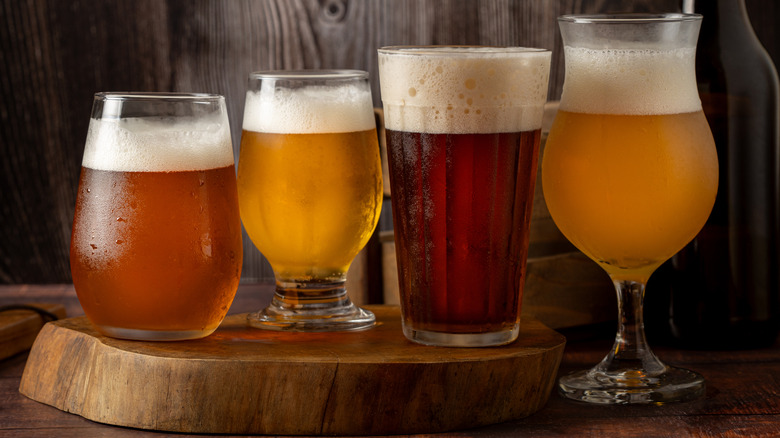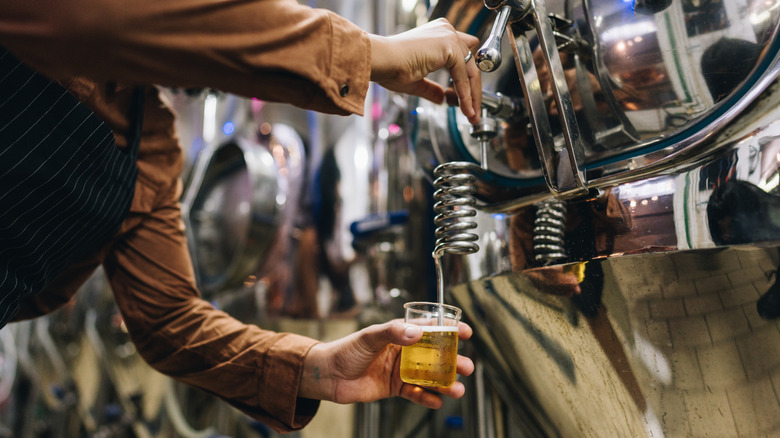The Craft Beer Myth You Have To Stop Believing
Whether it's the best craft brew from every state or one of the exceptional beers that are extremely hard to find, it's no secret that Americans adore craft beer. However, although the term "craft beer" tends to invoke images of artisan brewers mixing organic, locally grown hops into complex craft IPAs, the truth is, the idea that all "craft" beers are lovingly handcrafted by small independent brewers is a myth.
In the United States, the Brewers Association defines craft breweries as those that produce 6 million barrels of beer or less per year and are no more than 25% owned or controlled by an alcohol company that is not a craft brewer. Additionally, the trade group emphasizes that craft beer should be innovative, distinct, and generally made with high-quality, traditional ingredients. All of this sounds great, but there's one big problem — while the Brewers Association definition of craft beer is widely accepted, these guidelines are not official legal requirements. The reality is that almost any brewery can label any beer as craft if it wants. Case in point: A 2015 lawsuit against MillerCoors for deceptive labeling of Blue Moon (which is served with an orange slice for a reason) as "artfully crafted" was thrown out after MillerCoors argued that there's no legal definition of craft beer.
Why craft beer is so hard to define
The definition of craft beer is so hazy for several reasons. For one thing, although the modern wave of American craft beer started in the 1960s, the term "craft" in reference to small, independent brewers didn't gain widespread popularity until relatively recently. What's more, as craft beer has gone mainstream, some trailblazing craft brewers have outgrown the Brewers Association definition of craft beer — for example, Boston Beer Co. has long been considered a craft beer pioneer, but the company sold over 7 million barrels of beer in 2020. To make things even more confusing for consumers, many formerly independent craft brewers, such as Goose Island and Elysian, have been bought up by macro breweries like Anheuser-Busch. In other words, it's quite possible that a brewery giant produces your favorite craft beer.
Although there's nothing wrong with cheap but delicious beers produced by macro breweries, paying a premium for not-so-craft "craft" beer can leave a bitter taste. If you're looking for an easy way to ensure that you're enjoying craft beer produced by small, independent brewers, you can look for the Brewers Association independent craft brewer seal (which can only be used by brewers that meet the trade organization's definition of craft beer).

